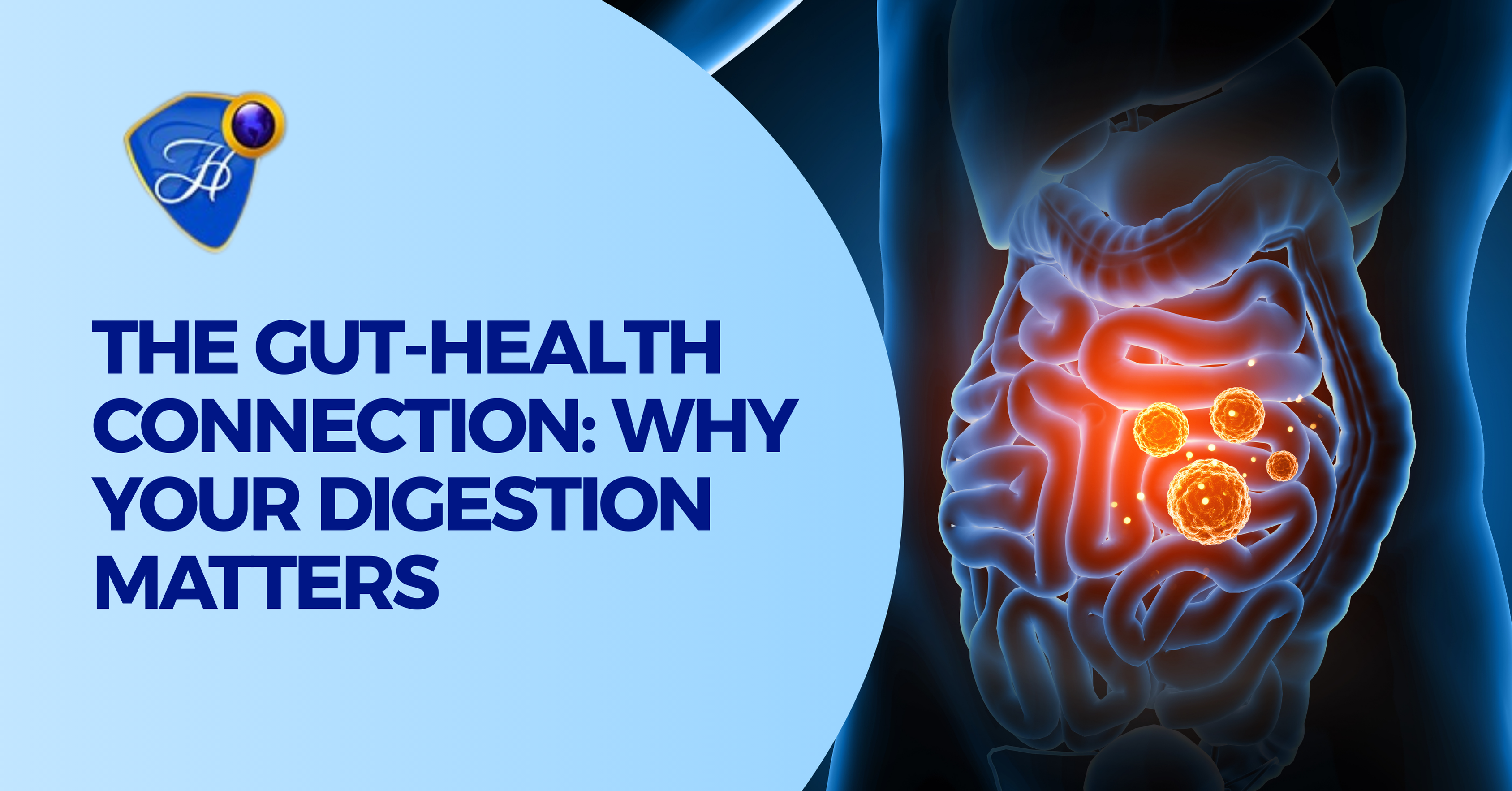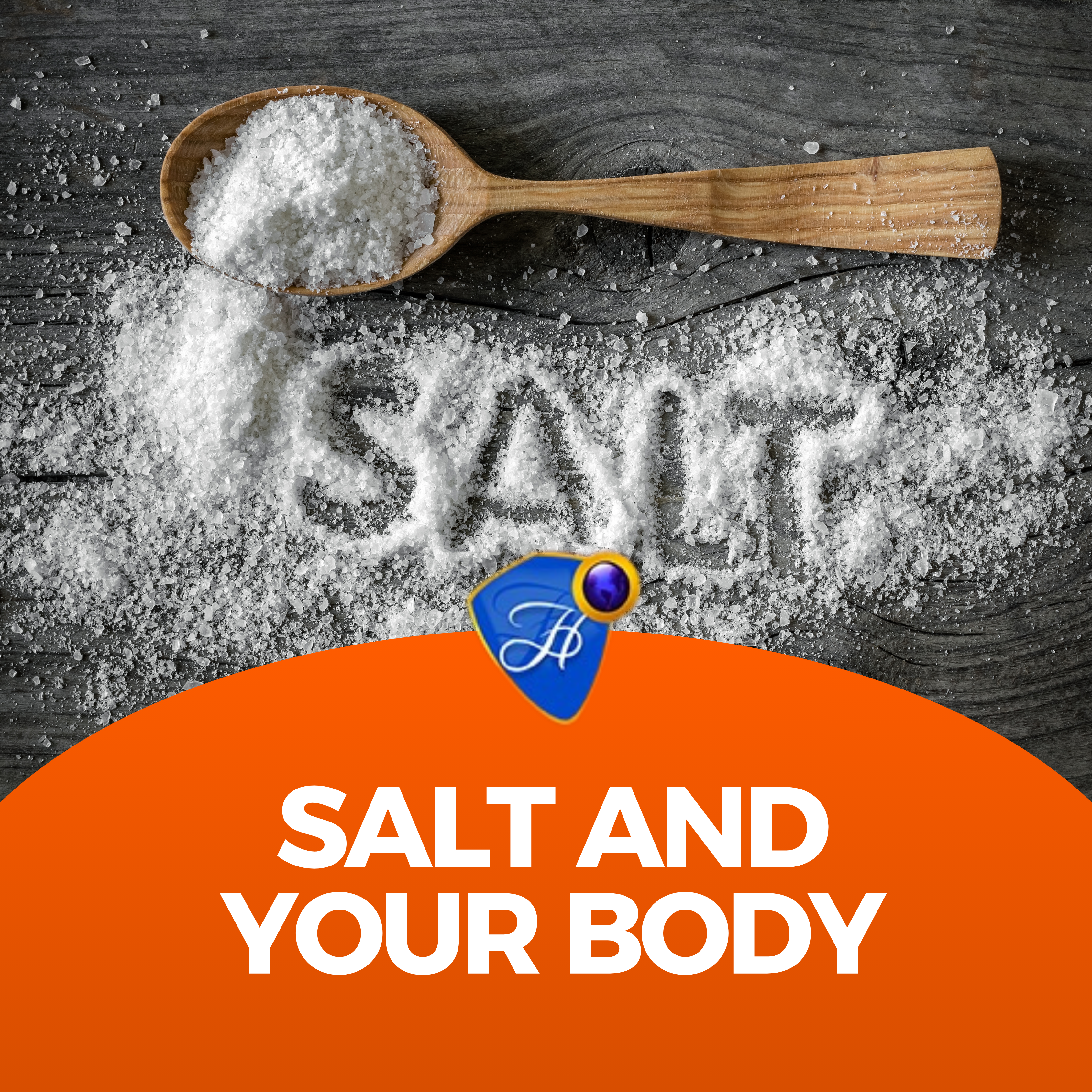THE GUT-HEALTH CONNECTION: WHY YOUR DIGESTION MATTERS
When we think about health, we often focus on the heart, the brain, or the immune system. Yet, there’s an often-overlooked powerhouse that plays a central role in our overall well-being—the gut. Far more than just a place where food is digested, the gut is home to trillions of microorganisms collectively known as the gut microbiome. These tiny organisms, along with the digestive system itself, influence everything from nutrient absorption and immunity to mood and energy levels. Understanding and nurturing your gut health is one of the most powerful ways to promote long-term wellness.
THE ROLE OF THE GUT IN YOUR HEALTH
1. Digestion and Nutrient Absorption: The gut is responsible for breaking down food into nutrients the body needs. Without proper digestive function, even the healthiest meals may not fully benefit you.
2. Immune System Support: About 70% of the body’s immune cells are located in the gut. A healthy digestive system helps the body fight infections and reduces the risk of chronic diseases.
3. The Gut-Brain Connection: The gut communicates with the brain through a network called the gut-brain axis. This means your digestive health can directly affect your mood, mental clarity, and even conditions like anxiety or depression.
4. Metabolism and Weight Balance: A balanced gut microbiome influences metabolism and plays a role in maintaining a healthy weight. Poor gut health has been linked to obesity, diabetes, and other metabolic disorders.
SIGNS OF POOR GUT HEALTH
• Frequent bloating, gas, or indigestion
• Chronic fatigue or low energy
• Food intolerances or sensitivities
• Irregular bowel movements (constipation or diarrhea)
• Frequent illnesses or a weakened immune system
HOW TO IMPROVE GUT HEALTH
1. Eat a Balanced Diet: Include fiber-rich foods such as whole grains, fruits, and vegetables to feed beneficial gut bacteria.
2. Probiotics and Prebiotics: Probiotics (found in yogurt, kefir, and fermented foods) add healthy bacteria to your gut, while prebiotics (like bananas, garlic, and onions) nourish them.
3. Stay Hydrated: Water aids digestion and keeps the intestines moving smoothly.
4. Limit Processed Foods and Sugar: These disrupt the balance of good bacteria and promote harmful microbes.
5. Manage Stress: High stress levels can affect gut function and microbiome balance.
6. Get Enough Sleep: Quality rest is vital for gut repair and healthy digestion.
Your gut health is about more than avoiding stomach discomfort—it's central to your overall well-being. A well-nourished gut supports your immune system, sharpens your mind, and keeps your body energized and balanced. By making small but consistent lifestyle changes, you can cultivate a healthier gut and, in turn, a healthier life. Remember: when you take care of your digestion, you’re taking care of your whole body.























Comments
Eleanor Fant
One’s of the best template out of there. design, code quality, updates etc everything you needs guys, buy it you won’t regret it!
Alexander Ljung
This theme is super awesome! But I had one small issue with link option in parallax portfolio. The other day!
Shahnewaz Sakil
His many legs, pitifully thin compared with the size of the rest of him, waved about helplessly as he looked
Leave A Comment
Kindly note that your comment/reply will first be approved before it appears above